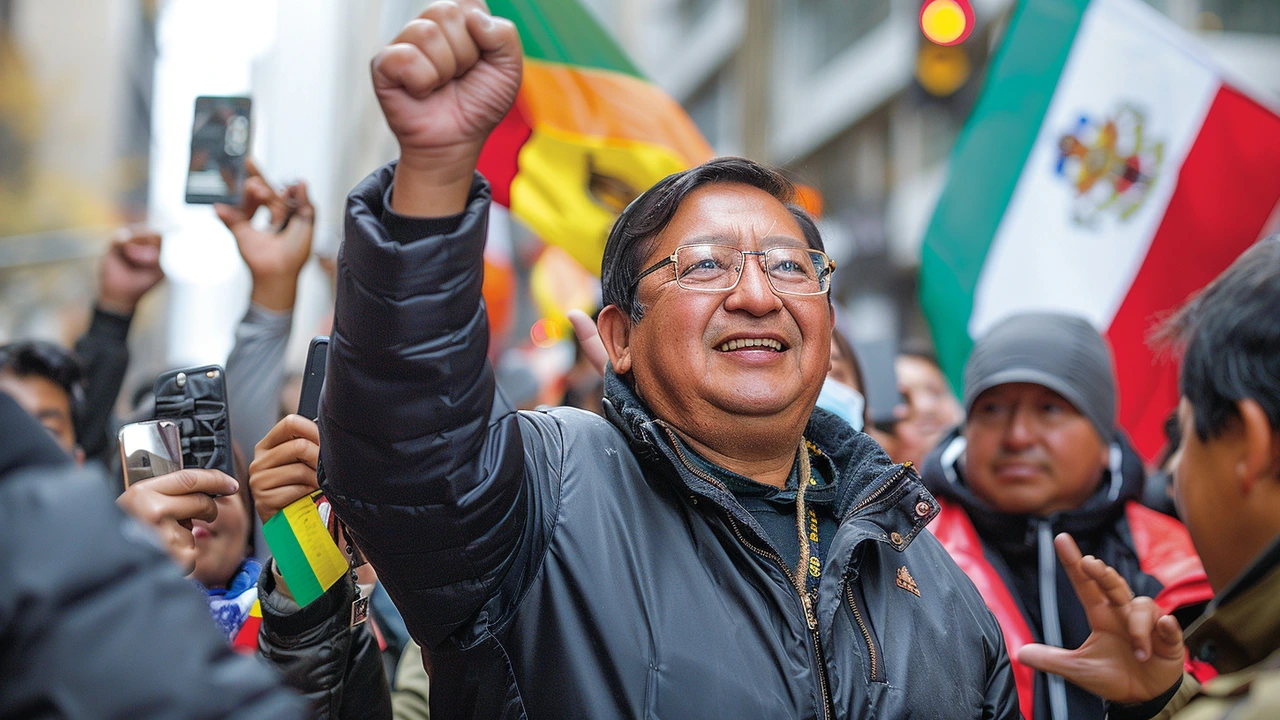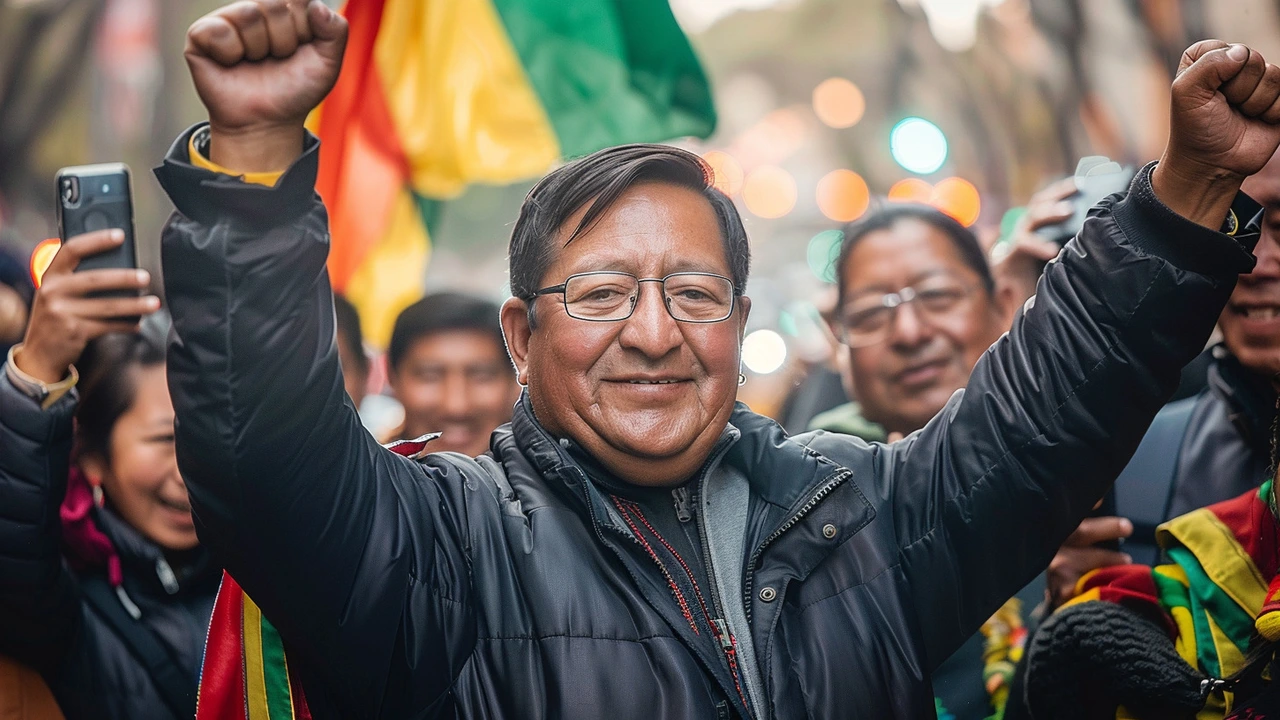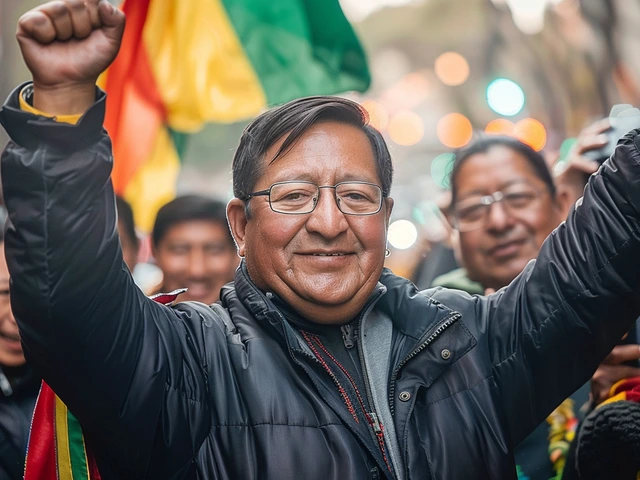Bolivian Authorities Prevent Military Coup Attempt
In a significant development, Bolivia has thwarted an attempted military coup, arresting key figures involved in the plot. General Juan Jose Zuniga, the former general commander of the Bolivian armed forces, and Juan Arnez Salvador, head of the Bolivian navy, are now in custody. Their arrest follows a dramatic series of events that nearly destabilized the nation just two days after Zuniga publicly declared his intention to arrest former President Evo Morales if he decided to run for office again in 2025.
General Zuniga had been appointed by the current president, Luis Alberto Arce Catacora, in 2022. However, the relationship between Zuniga and Arce deteriorated over time. Zuniga became an outspoken critic of the president in the week leading up to the attempted coup. This public scrutiny added tension to an already fragile political climate in Bolivia.
Criminal Actions and Charges
The Justice Minister of Bolivia, Ivan Lima, has initiated criminal proceedings against Zuniga under articles 121, 127, and 128 of the Bolivian Penal Code. These articles deal specifically with armed uprisings against the nation's security, the incitement of military personnel, and attacks against state sovereignty and the country's highest authorities. The charges carry severe penalties, with the potential for up to 20 years in prison. This move was seen as essential to send a strong message about the sanctity of constitutional order in Bolivia.
Reaction from the International Community
The international community quickly reacted to the coup attempt, overwhelmingly condemning the actions of the military figures involved. Notable statements came from leaders in Chile, Ecuador, Peru, Mexico, Colombia, and Venezuela, all of whom emphasized the importance of preserving democracy in Bolivia. Furthermore, the Organization of American States (OAS) issued a firm declaration stating that the international community will not tolerate any breaches of Bolivia's constitutional order.
Response from Domestic Political Figures
Even within the country, condemnation was swift and unequivocal. Jeanine Anez, Bolivia's conservative ex-president who is currently serving a prison sentence, voiced her disapproval of the coup attempt. Despite her differences with the current administration, she stressed that any change in leadership should come through democratic elections. Anez's statement highlighted a rare moment of unity in the politically fractured nation.
New Appointments in Military Command
In response to the serious breach within the military ranks, President Arce has appointed Jose Wilson Sanchez as the new military commander. This decision is seen as an effort to restore stability and trust within the armed forces. Sanchez's appointment marks a significant shift and serves as a message to all military personnel about the importance of adhering to constitutional principles and loyalty to the democratically elected government.
As Bolivia navigates this period of political turbulence, the broader implications for Latin American politics cannot be ignored. The region has a long and fraught history with military coups and political upheaval, making the robust response by both domestic and international actors particularly noteworthy. This incident underscores the critical importance of democratic institutions and international solidarity in upholding the rule of law and protecting sovereign states from internal threats.
The repercussions of this foiled coup attempt are likely to resonate for some time. It poses questions about the stability of Bolivia's political landscape as the country prepares for another electoral cycle in 2025. With the arrest of such high-ranking military figures, the integrity of Bolivia's armed forces and their role in national politics will undoubtedly come under scrutiny.

Conclusion: Preserving Democracy in Challenging Times
The swift capture of those involved in the coup attempt sends a clear message to any would-be disruptors of Bolivia's constitutional order. The country now faces the task of mending internal divisions while strengthening its democratic institutions. The global community's support acts as a crucial buffer against anti-democratic forces, reinforcing the importance of regional stability and cooperation. By addressing the root causes of political unrest and promoting inclusive political dialogue, Bolivia can hope to achieve a more stable and prosperous future.
In the coming months, all eyes will be on Bolivia to see how it handles the aftermath of this crisis and prepares for the future. The commitment to democratic processes will be tested, and the nation's leaders will need to navigate these challenges with resilience and foresight. Ultimately, the preservation of democracy in Bolivia is not just a national concern but a regional imperative that carries lessons for the entire Latin American continent.



Comments
The notion that a military faction could think itself a guardian of the nation feels oddly romantic, yet reality swiftly pulls the carpet out from under such fantasies. In Bolivia's case, the swift legal net cast around General Zúñiga and Admiral Arnez shows that power without accountability is a brittle illusion. While some might chant the heroic overthrow of corrupt elites, the truth is that stability hinges on institutions, not pen‑chants. The regional chorus praising democracy reminds us that the louder the rhetoric, the more we must examine the substance beneath. Ultimately, the moment underscores how fragile the balance between dissent and disorder truly is.
Oh, the drama! How swiftly the curtain falls on those who dare to whisper "rebellion" in the corridors of power!!! The moral ledger is clear: no soldier should trade a uniform for a scepter, no matter how "justified" their cause may appear!!! The law, with its cold statutes, stands as the only true arbiter, lest we tumble back into the abyss of chaos!!! Let this be a beacon for every would‑be agitator: the Constitution is not a suggestion, it is the backbone of civilization!!!
So the generals thought they could rewrite history with a coffee‑break mutiny.
Let’s not romanticize the spectacle; coups are never the answer, no matter how alluring the narrative may sound. The facts on the ground show a clear breach of civilian supremacy, and instinctively we must condemn that breach. Yet, calling for unity doesn’t mean turning a blind eye to the roots of discontent. By addressing the grievances that fuel such plots, we can build a more resilient democracy. The path forward lies in dialogue, reform, and an uncompromising commitment to constitutional order. We can honor the brave civilians who stood up to the threat without compromising our own principles. In short, use this crisis as a catalyst for healing, not as a pretext for further division.
Colleagues and citizens alike, the recent events present both a warning and an opportunity. The decisive action taken by Bolivian authorities demonstrates that firm adherence to law can deter destabilizing ambitions. Let us channel this momentum into constructive civic engagement, fostering transparency and accountability at every level. By encouraging informed participation, we reinforce the very foundations that protect our societies from turmoil. Together, we can turn a moment of crisis into a blueprint for enduring democratic health.
Indeed, the swift containment of the coup plotters illustrates a profound lesson about the interplay between military obedience and civilian oversight. When an armed force turns inward, it threatens the very social contract that legitimizes governance, and the Bolivian response reasserts the primacy of constitutional rule. Moreover, the regional solidarity displayed by neighboring states underscores a collective understanding that no nation exists in isolation when confronting anti‑democratic forces. This shared vigilance is a testament to a growing inter‑American ethos that values stability over partisan gain. At the same time, the internal discord that gave rise to such aspirations must not be dismissed as a mere footnote; it signals underlying fissures that demand thoughtful policy reform. Economic inequities, historical grievances, and perceptions of marginalization can ferment dissent, providing fertile ground for extremist narratives. Addressing these root causes requires a concerted effort from legislators, civil society, and the private sector alike. By investing in inclusive education, equitable resource distribution, and transparent governance, the state can diminish the allure of militarized solutions. Furthermore, the legal proceedings against Zúñiga and Arnez set a precedent that no individual, regardless of rank, is above the law-a principle essential for long‑term stability. The judiciary’s role, therefore, is not only punitive but also restorative, offering a framework for reconciliation. International observers have praised the measured response, yet they also caution against complacency, reminding us that democracy is a continuous process, not a static achievement. The OAS declaration, while supportive, carries an implicit expectation that member states will uphold shared standards and intervene diplomatically if needed. In this vein, Bolivia’s new military commander, Sanchez, carries the heavy mantle of restoring trust within the armed forces while respecting civilian authority. His leadership will be scrutinized not merely for strategic competence but for his commitment to ethical conduct. As the nation approaches its 2025 electoral cycle, these reforms and institutional checks will be vital to ensuring a fair and peaceful transition. Ultimately, this episode offers a vivid illustration: when democratic institutions are resilient and inclusive, the specter of forceful usurpation loses its potency.
What a relief to see democracy hold strong 😌💪
The recent interdiction of the insurrectionist faction in Bolivia represents a multifaceted case study in civil‑military relations, operational risk management, and intergovernmental coordination. From a strategic perspective, the rapid deployment of investigative assets exemplifies best‑practice protocols for threat containment within a sovereign framework. Moreover, the legal codification under articles 121, 127, and 128 underscores the significance of statutory specificity in adjudicating breaches of state security. In terms of regional geopolitics, the coordinated diplomatic statements function as a soft‑power amplification mechanism, reinforcing normative expectations around constitutional fidelity. Meanwhile, the internal dynamics between President Arce and the newly appointed commander, Sanchez, will likely be scrutinized through the lens of command‑and‑control theory. The implications for defense procurement, force modernization, and morale are non‑trivial, demanding a calibrated approach to resource allocation. Stakeholders across civil society, the private sector, and multinational entities must align on governance metrics to sustain confidence. As such, the episode serves as a catalyst for dialogue on the integration of legal, military, and diplomatic vectors in safeguarding democratic continuity. In summation, the confluence of decisive legal action and multinational endorsement provides a robust template for preemptive crisis mitigation.
One cannot help but wonder how much longer societies will tolerate the thin veneer of order before the undercurrents of undemocratic ambition erupt again, and yet the silence of complacency remains deafening.
It's disheartening to hear that frustration, and I absolutely share that concern. While we recognize the latent tensions, we also have to acknowledge the remarkable resilience shown by Bolivian institutions in this moment. Empathy toward those fearing instability is essential, yet we must also celebrate the decisive steps taken to protect the democratic framework. By fostering inclusive dialogue and addressing systemic grievances, we can work toward a more stable future. Let's keep the conversation constructive and hopeful 😊.
Hey folks, great to see the community spot on with the analysis of Bolivia's recent events. It's encouraging when we can break down these complex situations in a straightforward way. Keeping the tone light helps us stay engaged without losing focus on the core issues.
Indeed, the points raised already are insightful, and, as we continue this discussion, it's crucial to consider the broader implications for regional security, as well as the internal mechanisms that can either mitigate or exacerbate such crises; moreover, by sharing diverse perspectives, we enrich our collective understanding, and, ultimately, foster a more resilient democratic fabric across the continent.
Democracy survives when institutions outlast ambitions.
The swift neutralization of the coup plotters in Bolivia is a textbook example of how decisive, security‑first policies can safeguard sovereign interests, and it should serve as a rallying cry for nations that value realpolitik over naive idealism. Our own strategic posture must reflect this reality, prioritizing robust defense postures and unwavering support for constitutional order worldwide.